Meet the VN5, a London cab for packages, not people
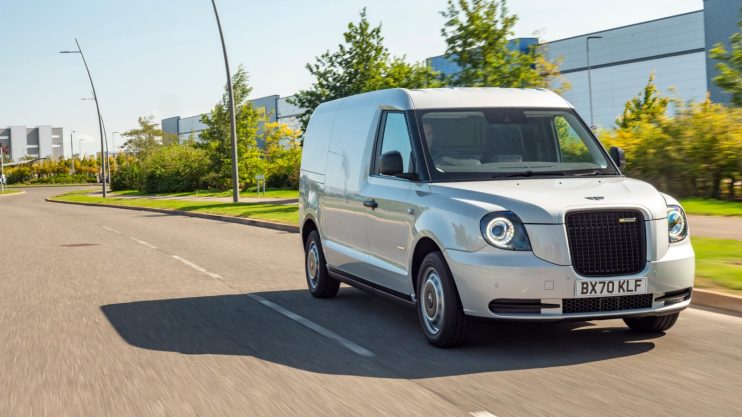
After nine months of the ‘new normal’, I now permanently work from home. Water-cooler bants now happen on Slack, meetings take place via Zoom. And the time I spent commuting back-and-forth on the M25 is now used for home-schooling two uninterested children. Every silver lining…
Anyway, after 35 years, clearing the office was no small task. There were computers, desks and swivel chairs, of course, but also shelves and shelves of car magazines, launch route books (from the days before sat nav), novelty USB sticks and a Bugatti Chiron made from 3,599 pieces of Lego.
Clearly, one car couldn’t swallow it all. What I needed was a van.
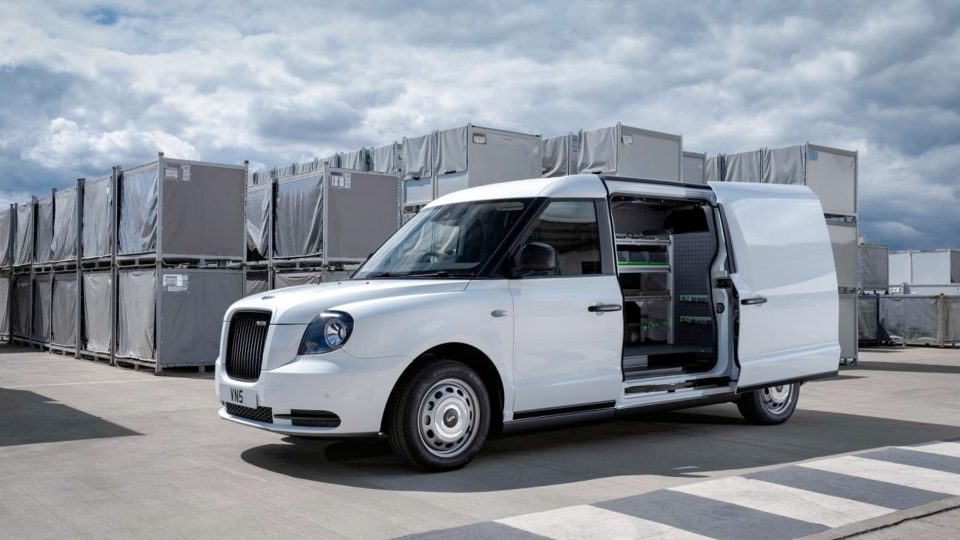
That’s where the London Electric Vehicle Company (LEVC) VN5 came in. If its front end looks familiar, that’s because it shares many parts, including a plug-in powertrain, with the LEVC TX – known to its passengers as the London black cab. If the VN5 becomes as ubiquitous as its Hackney Carriage cousin, LEVC (which, ironically, is based in Coventry) is onto a winner.
Hang on, electric? The name seems misleading, as lift the bonnet and you discover a 1.5-litre, three-cylinder petrol engine. However, this acts purely as a generator – a ‘range-extender’ in industry-speak – and doesn’t directly drive the wheels: a job entrusted to a 31kWh lithium-ion battery and 110kW electric motor.
The result, assuming you start each journey fully charged, is 314mpg and CO2 emissions of just 21g/km. The VN5 offers 61 miles of pure electric range, or 304 miles if you drain the batteries and the fuel tank.
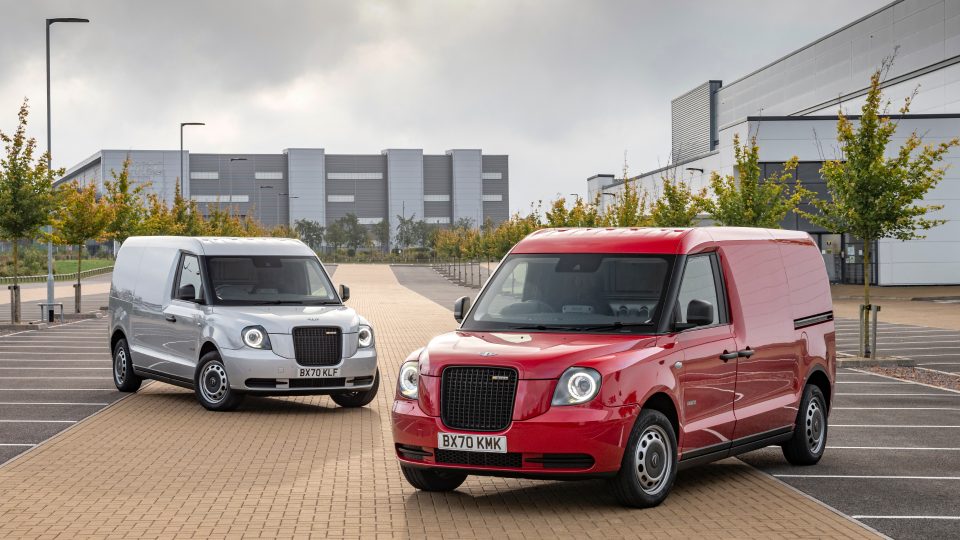
In practical terms, this means urban delivery drivers could manage a full shift on electric power alone, slashing their company fuel bill and improving local air quality. The VN5 also evades the London Congestion Charge until 25 October 2021 – and is future-proofed for clean air zones in other UK cities.
Beyond that friendly face (go for red and everyone will assume you own a black and white cat), the VN5 is, like all vans, essentially a box on wheels. That box measures 5.5 cubic metres – enough for two Euro pallets, which can be loaded from the rear or via the sliding side door.
Maximum payload is 830kg, so even two decades worth of weekly Autocar magazines didn’t trouble it. Unlike my still-suffering back.
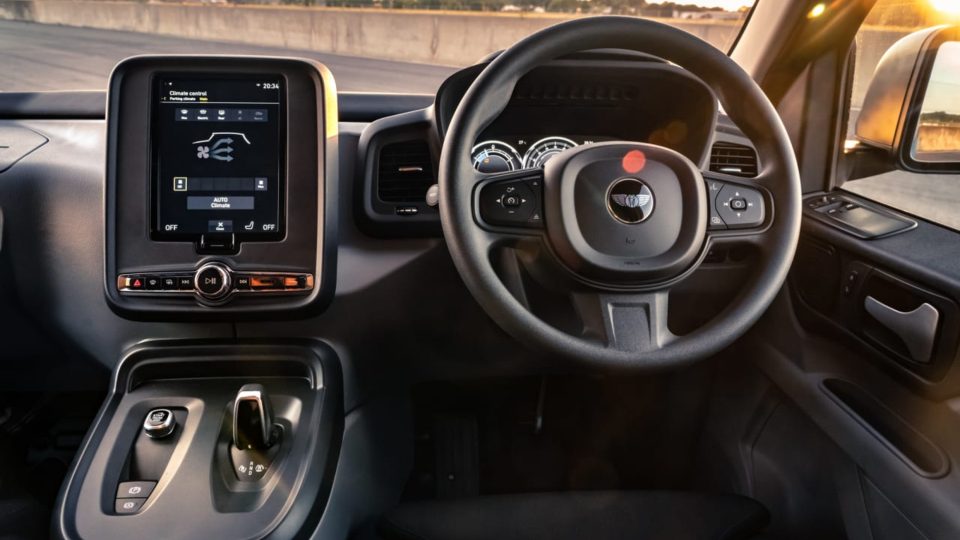
Inside, Volvo owners will recognise the stubby gear lever and Sensus media system (LEVC is part of Geely, the Chinese company that also owns Volvo – and indeed Lotus). The 9.2-inch touchscreen is slick and intuitive, but the VN5’s digital dials look cluttered and confusing.
Also, soft-touch Swedish plastics have been traded for something decidedly more ‘commercial’. At least it should be hard-wearing.
The VN5 comes in three trim levels. Entry-level Business has climate control, an electrically adjustable driver’s seat, DAB radio, automatic wipers and Bluetooth connectivity. Upgrading to City adds plenty of desirable safety kit, including parking sensors, lane-departure warning and curtain airbags. But the one you want is Ultima, with sat nav and 22kW AC fast charging. The latter can replenish the batteries from flat to full in just 75 minutes.
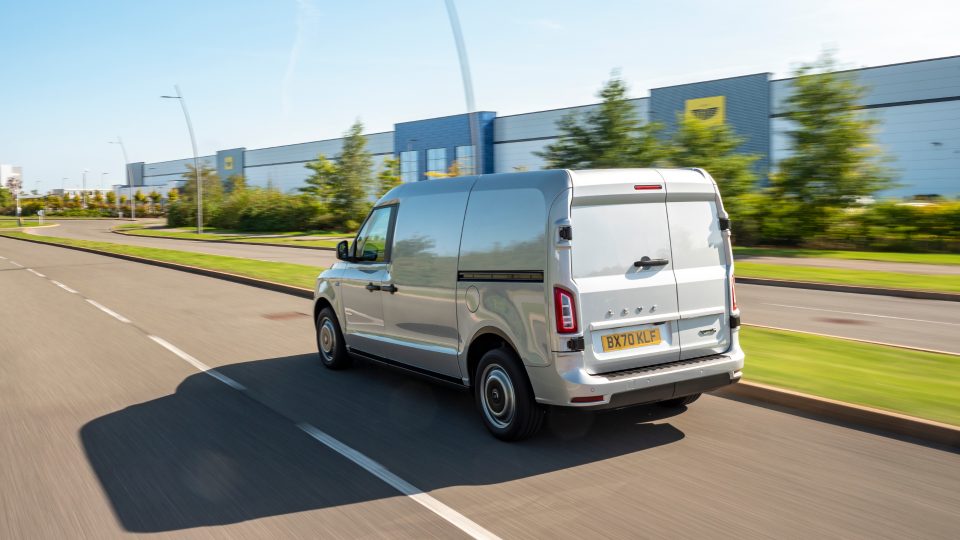
Some vans are surprisingly fun to drive when unladen, but the VN5 isn’t one of them. Performance is modest (0-62mph takes 13.2 seconds) and the weighty steering lacks much feedback. Ride quality is also rather leaden, albeit improved by some ballast in the back.
Where the LEVC excels is in town, where its punchy electric torque and two-level regenerative braking (which slows the van smoothly while boosting its battery) make for swift, fuss-free progress.
A turning circle of 10.1 metres isn’t as tight as the TX – at 8.5 metres, the taxi can almost spin on its axis – but still feels ridiculously manoeuvrable. It U-turns more swiftly than Boris Johnson in a pandemic.
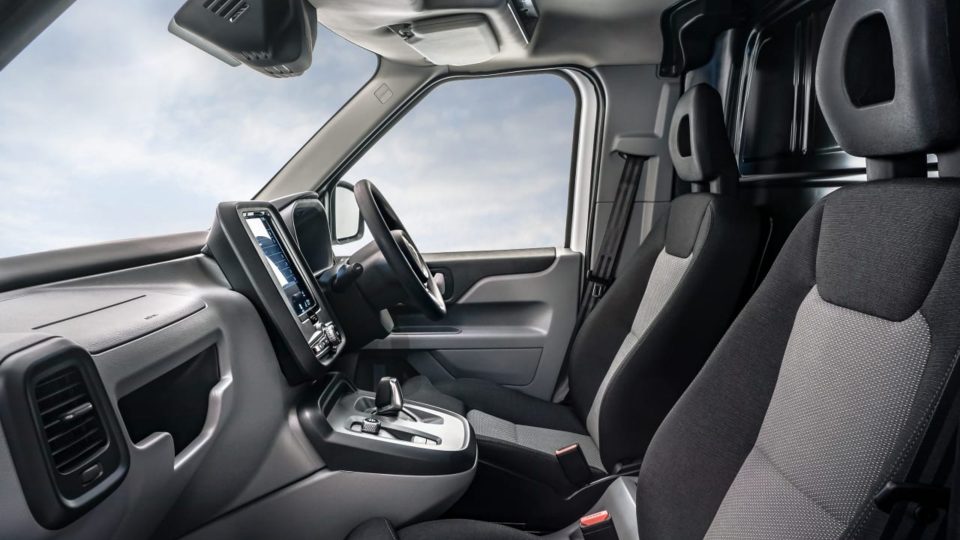
There are a number of fully electric vans on the market, including the Nissan eNV200, Vauxhall Vivaro-e and Citroen Berlingo Electric, but they offer a comparatively limited range (just 106 miles for the Citroen). The hybrid – sorry, range-extender – VN5 is more practical, but also more expensive.
Prices start at £46,500 excluding VAT, stretching to £52,000 for the Ultima. Its key rival, the Ford Transit PHEV, is in the same ball-park, but that’s still a heap of cash when a standard Transit Custom starts at £23,090.
Still, if the fuel-saving sums add up for your business, the LEVC VN5 has much to recommend it. And as many of us work from home, relying on vans for shopping deliveries, expect to see plenty of them on the road. Now, does anyone want to buy a slightly scuffed Bugatti Chiron?
Tim Pitt writes for Motoring Research
PRICE: £52,000 (excluding VAT)
0-62MPH: 13.2sec
CO2 G/KM: 21
MPG COMBINED: 314
ELECTRIC RANGE: 61 miles
PAYLOAD: 830kg